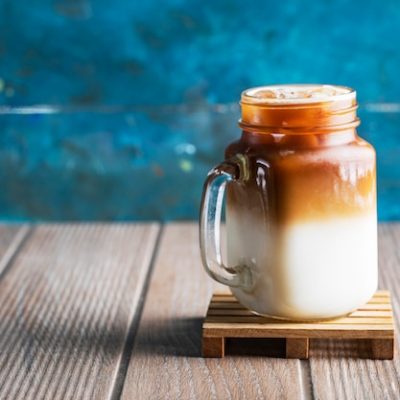Anxiety complicates life significantly. What many people do effortlessly can be quite difficult for someone dealing with anxiety. It can impact every aspect of your life, including your ability to lose weight. If you’ve been struggling to lose those extra pounds, I completely understand. Your anxiety might be the reason you’re unable to stop gaining weight. However, there are ways to address this, and I’m here to help.
The key is to adopt gentle weight-loss strategies, as they tend to be more effective for those with anxiety. As an anxiety coach, I assist individuals in reducing anxiety through dietary, lifestyle, and mindset changes.
Anxiety is your body’s reaction to stress, characterized by feelings of unease, fear, or apprehension about the future. This response is natural in highly stressful situations and can even be beneficial, like when you’re being chased by a bear. It’s also normal to feel anxious occasionally, such as before an exam, interview, or first date. However, if you frequently feel anxious about everyday situations, this isn’t your natural state and can feel quite overwhelming.
Anxiety can range from mild to severe, and there are various anxiety disorders, including generalized anxiety disorder, social anxiety disorder, panic disorder, and obsessive-compulsive disorder. While these disorders have distinct differences, they also share common symptoms. If you experience excessive fear and worry along with other symptoms for more than two weeks, it’s crucial to consult your doctor for a diagnosis and to rule out other health issues.
Many people crave sugary foods when they’re anxious. Why is that? Research indicates that sugar can temporarily alleviate stress by suppressing the hypothalamic-pituitary-adrenal (HPA) axis in your brain, which regulates your stress response. However, if you continually indulge in sugar cravings—whether from refined sugars or healthy foods high in simple sugars—you risk having too much glucose in your bloodstream. This excess sugar can lead to weight gain, as it gets stored as fat. Foods high in simple sugars can cause rapid spikes and drops in blood sugar, leading to more cravings and anxiety-like symptoms.
While cakes and watermelon are not the same—since watermelon has nutritional benefits—it’s essential to manage your anxiety and sugar cravings by limiting your intake of fruit, especially sweet varieties. Remember, the nutrients found in fruit can also be obtained from vegetables.
When feeling anxious, worried, tired, or sad, it’s common to seek comfort in food, leading to emotional eating and often resulting in overeating. In these states, your mind may be distracted from your meal, causing you to eat even after you’re full. If you consume more calories than you burn, weight gain is the outcome.
Anxiety not only craves sugar but also junk food. Many people find solace in snacks like chips, chocolate, ice cream, cakes, pizza, and burgers, making them more likely to crave unhealthy options when anxious rather than a plate of vegetables. Processed foods are low in nutritional value and high in added sugars and unhealthy fats, contributing to weight gain, nutritional deficiencies, and increased anxiety.
Anxiety is draining. Constant worry, irritability, and nervousness throughout the day can sap your energy and lead to fatigue. Low energy and fatigue are common symptoms of anxiety. If you’re constantly tired, you may lack the motivation to exercise. Even a half-hour walk can feel overwhelming for someone with anxiety. Without regular movement, your body can’t burn off excess calories, leading to weight gain.
Anxiety triggers the release of the stress hormone cortisol. Excess cortisol can wreak havoc on your body, causing fat accumulation in the stomach and resulting in weight gain. High cortisol levels can also affect blood sugar, leading to sudden drops and cravings for more food, which can result in overeating. The longer you experience anxiety, the more weight you may gain.
Anxiety can disrupt digestion, making it difficult for your body to absorb essential nutrients—carbohydrates, fats, proteins, vitamins, and minerals. This can slow your metabolism, reducing calorie burning and leading to excess body fat and fatigue. Poor digestion can also cause inflammation and bloating, while excess toxins can trigger more anxiety.
Frequent anxiety can make it challenging to fall asleep and stay asleep, leading to sleep deprivation, which can exacerbate anxiety and create a negative cycle between the two. Additionally, lack of sleep can negatively impact your weight. Research shows that insufficient sleep can increase levels of the hunger hormone ghrelin and decrease the satiety hormone leptin, potentially leading to overeating and weight gain.
Maintaining a healthy and balanced diet is crucial for both physical and mental health, as well as achieving your natural weight. While all natural foods offer beneficial nutrients, some are more effective at alleviating anxiety than others. Increasing your intake of anxiety-relieving foods while reducing or eliminating those that trigger anxiety can yield optimal results for your mental health and weight.
So, what does an anti-anxiety diet look like? There are various anti-anxiety diets, but I’ll focus on the one that helped me manage my anxiety. The main components of this diet include specific foods in particular proportions, while avoiding processed foods and a few others.
Mindful eating is a valuable practice for your health, enhancing nutrient absorption, improving digestion, and helping to calm you. To practice mindful eating, be fully present with your food at every meal. Savor each bite, paying attention to the flavors, colors, smells, and textures. Eat slowly and aim to chew each bite 30 times or more. Avoid distractions like television or phones during meals to fully engage in the experience.
Your metabolism slows at night, so to prevent undigested food from causing inflammation and anxiety, it’s best to avoid eating three hours before bedtime. This will help improve your sleep quality. The earlier you have your last meal, the better it will be digested.
To manage anxiety between meals, aim for three main meals (breakfast, lunch, and dinner) and a healthy snack in between. For instance, I often have an apple, pear, or green banana as a healthy snack, which helps manage cravings and anxiety.
Movement is vital for burning calories and controlling anxiety. However, when you’re dealing with anxiety, finding the energy or motivation to engage in physical activity can be tough. Opt for gentler forms of exercise, but ensure you practice regularly. Consistency is key—gentle but daily.
For example, I found a routine that effectively managed my anxiety and weight. This wasn’t something I implemented overnight; I gradually built up to it, and I recommend you do the same, especially if you’re currently inactive. You might also explore Avocadu’s Yoga Fat Loss Bible, which is great for beginners and offers a comprehensive, step-by-step program for weight loss through gentle daily yoga.
Once you build your strength and energy and start managing your anxiety, you can incorporate more intense forms of exercise. Quality sleep is essential for managing both anxiety and weight. I’ve discovered that following the Ayurvedic clock—waking up before sunrise and going to bed before 10 p.m.—is the most effective sleep routine for mental health. According to Ayurveda, the body uses the four-hour window from 10 p.m. to 2 a.m. to process experiences, emotions, and any remaining food from the day, allowing for repair and renewal.
Going to bed after 11 p.m. or midnight can leave you feeling tired in the morning, as our bodies are designed to rest in the dark and wake with the sunrise. Striving for a sleep pattern aligned with the Ayurvedic clock can enhance your sleep quality and mental health.
Alcohol and caffeine are stimulants that may provide temporary relief from anxiety but can worsen it hours later. Even if caffeine gives you the illusion of skipping a meal, its effects can lead to heightened anxiety and overeating once it wears off. I used to consume both excessively, but during my healing journey, I decided to eliminate them, and I’ve never looked back.
To manage anxiety, it’s crucial to adopt a daily relaxation technique. Simple practices like listening to calming meditation music or deep breathing for 10-15 minutes can help center and balance you. Think of relaxation as your daily reset. Keeping your relaxation practice straightforward increases the likelihood of consistency, and the more you practice, the sooner you’ll notice the benefits.
Relaxation techniques are vital for training your brain to stay present. When you’re present, you can’t be worried or fearful, which can significantly reduce anxiety. Meditation has also been shown to lower cortisol levels and provide numerous mental and physical health benefits, making it essential for anyone dealing with anxiety.
Chamomile tea made from loose chamomile flowers is one of the best drinks for anxiety. Research has demonstrated that chamomile consumption is beneficial for those with anxiety. Additionally, chamomile promotes weight loss, reduces bloating, and helps eliminate toxins and excess water. It also serves as a sleep aid.
Studies indicate that individuals with anxiety often have low magnesium levels. This essential mineral is crucial for managing anxiety, calming the nervous system, ensuring quality sleep, and supporting metabolism. If you’re struggling with anxiety, consider taking a magnesium supplement. However, not all magnesium supplements are created equal; some are more easily absorbed than others. I’ve been using magnesium chloride powder (food grade) for years, diluting it in water and drinking it every evening before bed. I can’t emphasize enough how much this supplement has transformed my life.
Anxiety complicates life, which is why addressing weight issues requires extra care. Even if it takes longer to get your weight back on track, by following the ten strategies outlined above, you can effectively manage your anxiety and weight in the long run.
Hi, I’m Sandra Glavan, an Anxiety Coach and founder of Amosuir, a website dedicated to helping people reduce anxiety naturally through dietary, lifestyle, and mindset changes, as well as fostering self-love. After battling chronic anxiety for 20 years, I finally overcame this mental challenge, and now I teach others how to apply my success formula. Alongside my personal experience, I hold diplomas in Anxiety Awareness, Life Coaching, Cognitive Behavioral Therapy (CBT), Psychotherapy and Counseling, Holistic Nutrition, Advanced Nutrition, Vegetarian & Vegan Nutrition, Stress Management, and Yoga. You can read more about my journey here.










